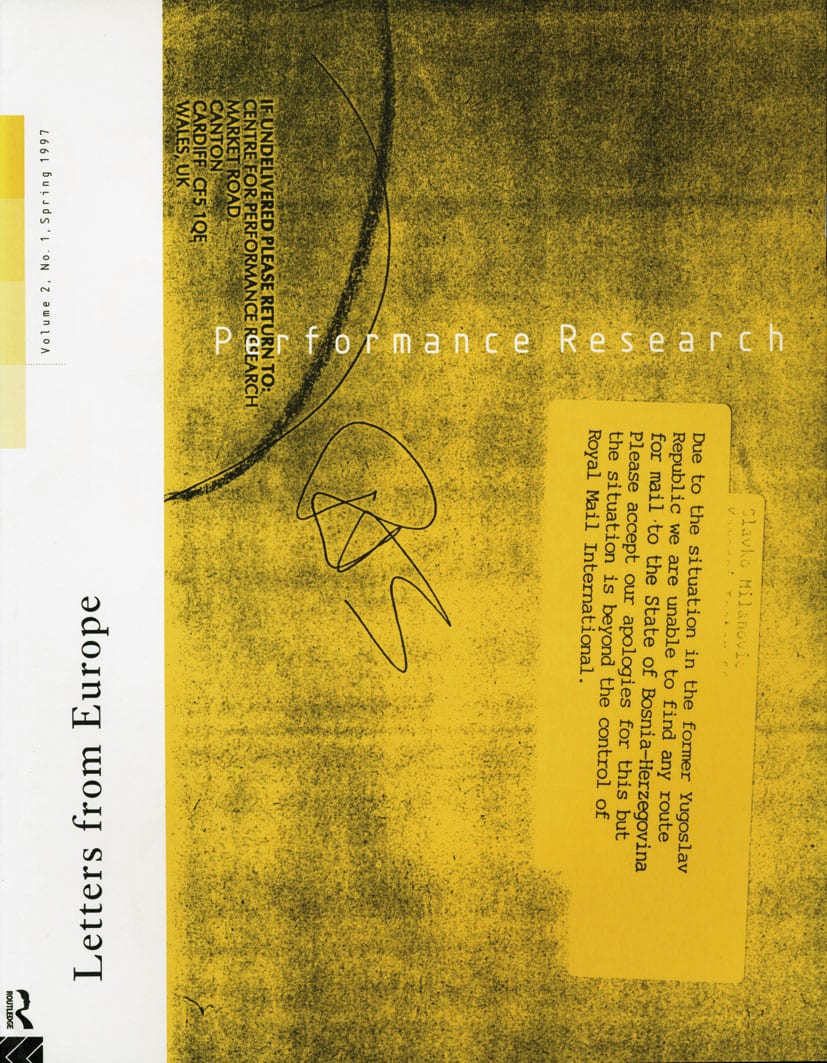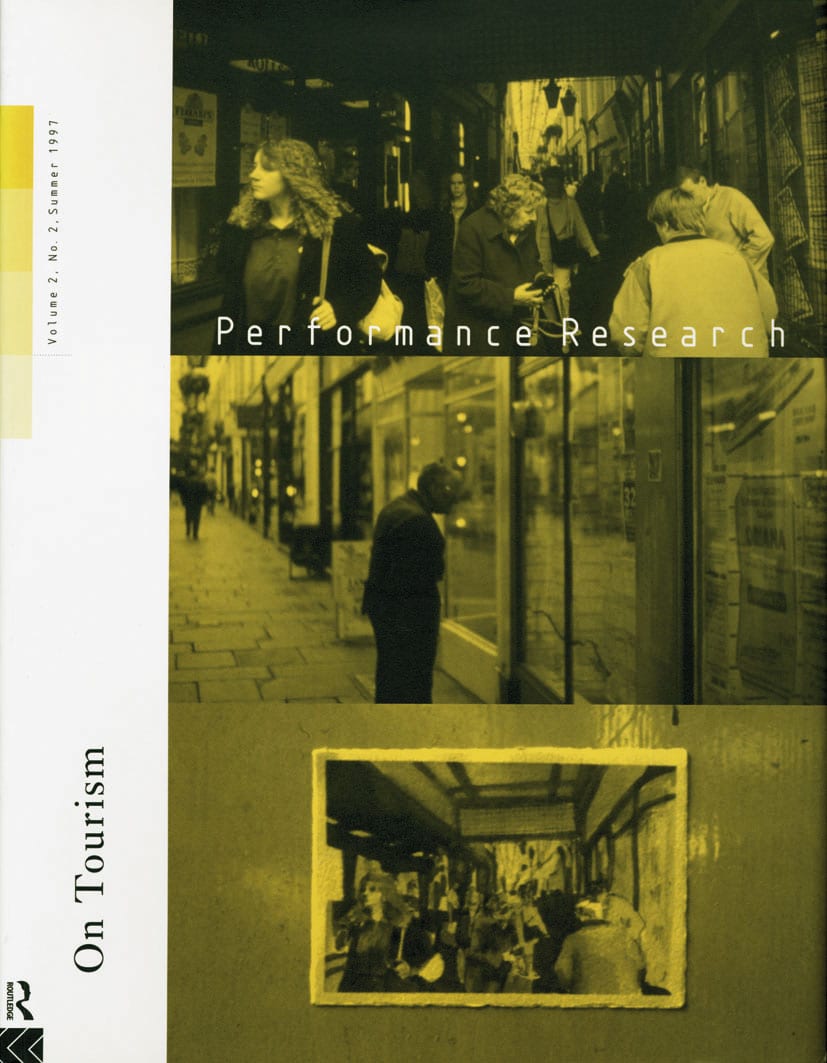Description
Suddenly, the topic of the research laboratory for theory and practice in performance that had been active daily for three months at the Israeli Institute for Advanced Studies in Jerusalem, became a global reality. In October 2019, a group of researchers and artists began investigating the notion of Interruptions expressed in artistic creativity and in works of art as well as through reflection and academic research in aesthetics, performance theory and poetics. And in January 2020, as we held the symposium summarizing the initial findings of this project, we did not yet know anything about the pandemic, which is still—now, a year and a half later—a central feature of our everyday realities. This issue of PR, with its thirty contributions by scholars and artists from the initial research laboratory (which focused on the work and thinking of Franz Kafka, Walter Benjamin and Bertolt Brecht) as well as the ‘newcomers’ from the local (Israeli) and international communities, considers the notion of Interruptions in/of performance in a broad range of historical, theoretical and political contexts.
READ THE EDITORIAL AND ARTICLE ABSTRACTS online
CONTENTS
1 Editorial: On Interruptions
FREDDIE ROKEM
8 Holding Breath: From Eyjafjallajökull to Thirumandhamkunnu
RICHARD GOUGH
19 ‘Let Demodocus rest his ringing lyre now!’ A Benjaminian refrain over the eighth book of The Odyssey
CARLOS GUTIÉRREZ AND VALENTÍN BENAVIDES
23 Plutarch’s Boat: On the spiritual sense of the scenic interruption
ESA KIRKKOPELTO
29 Performing Interruptions: The Ruth Kanner Theatre Group (RKTG) and Kafka’s An Imperial Message
ADI CHAWIN
34 Kafka’s Messages
GALILI SHAHAR
39 On ‘Halt!’ and On ‘on’: Franz Kafka’s ‘Up in the Gallery’
VIVIAN LISKA AND PAUL NORTH
52 Life as Script: Benjamin’s study of Brecht in Svendborg
NIKOLAUS MÜLLER-SCHÖLL
58 First as Tragedy, Then as Farce: Andreas Homoki and Michael Levine’s production of Alban Berg’s ‘Wozzeck’, Zürich Opera, 2015
DAVID LEVIN
65 On Interruption: Working through the past and the arts
MICHAL KOBIALKA
72 Interrupting Everyday Life: Socio-cultural origins of the Freudian slip
RUTH SCHOR
78 Here Now Yma Nawr
TRACY BREATHNACH EVANS
82 Picturing Meditation: Corporeal mime and the performative time of photography
COSIMO CHIARELLI
86 Backstage of the Eye: On interrupting sight in order to see
JAN KÜHNE
93 Spinoza’s Concept of ‘Wonder’ as Aesthetic Interruption
ARNON ROSENTHAL
98 Selected Texts: A selection from 30 theses on interruption. Interruption as an emancipatory gap [Artist pages]
IVANA MOMČILOVIĆ
102 Liquid Social Choreography: A kinetic perspective on Israeli public space during pandemic times
AVITAL BARAK
106 Interrupted Authority: Quotable gestures of (dis)stating a state
DAPHNA BEN-SHAUL
113 ‘Ladies and Gentlemen we interrupt our program…’: News, propaganda and resistance in radio broadcasting
MINOU ARJOMAND
119 Archiving Interruption as Intervention: A protest performance
ASHWARYA SAMKARIA
122 The Song of Disobedience: Interrupting the patriarchal order in everyday spaces in Iran through feminist intervention
SABA ZAVAREI
128 Interruptions from Speech: Spillovers of sound and language. A lullaby for an era that can no longer sleep.
ANDREA SOTO CALDERÓN & ANTONIO GÓMEZ VILLAR
134 Technoparticipation
LEE CAMPBELL
137 Theatre of Countertime: Or thinking with cycloids
JULIA SCHADE
141 Interruption(s): An interview with Falk Richter on the aesthetic, social and political dimensions
KRISTINA KOCYBA
146 The ‘Freicha’ as an Interruption in/of Westernized Israeli Theatre
NAPTHALY SHEM-TOV
149 Stop the Show: The Al-Midan theatre scandal and the dynamics of delegitimization
DORIT YERUSHALMI
156 The Star that Fell into a Tear: The day Yiddish theatre collapsed on stage
DIEGO ROTMAN
160 ‘A blank page…’ or ‘Ten years since language left…’ (Artaud)
MISCHA TWITCHIN
165 Epilogue
JAN KÜHNE
……………………………………………………………………………………
REVIEWS
167 How to Resist When Resistance Feels Impossible
CHRISTOPHER GROBE
168 Starting from Lived Experience
NOE MONTEZ
170 The great contraband a person can sneak into a prison is joy
NICHOLAS FESETTE
……………………………………………………………………………………
171 Thanks to IIAS
172 Notes on Contributors





